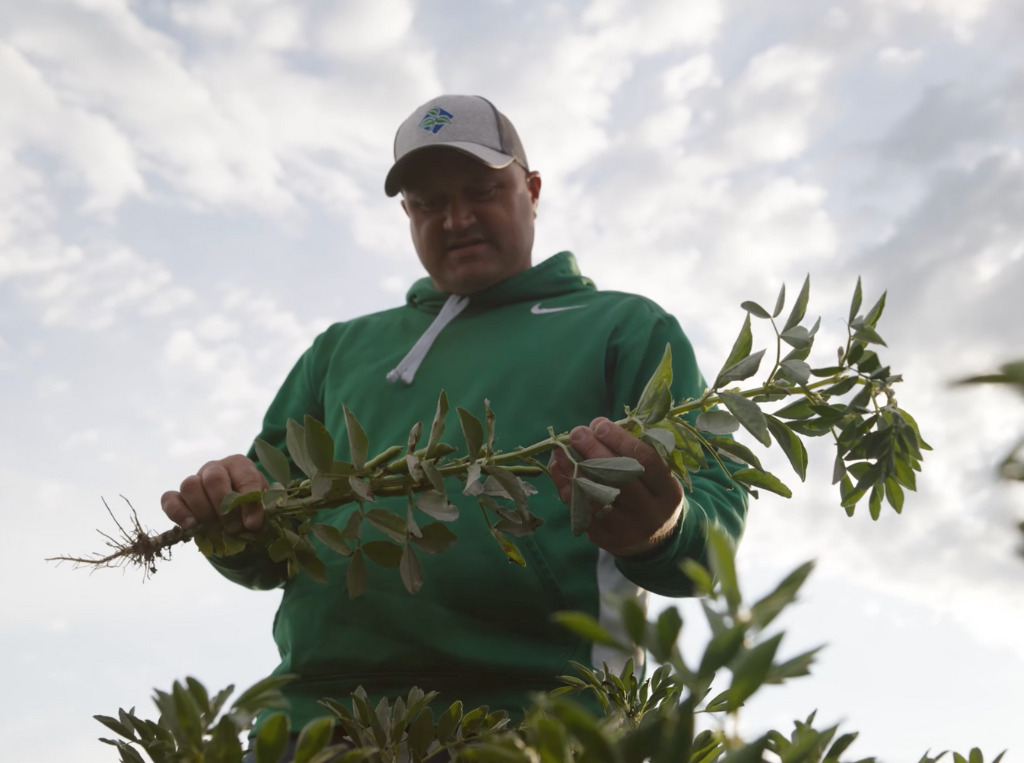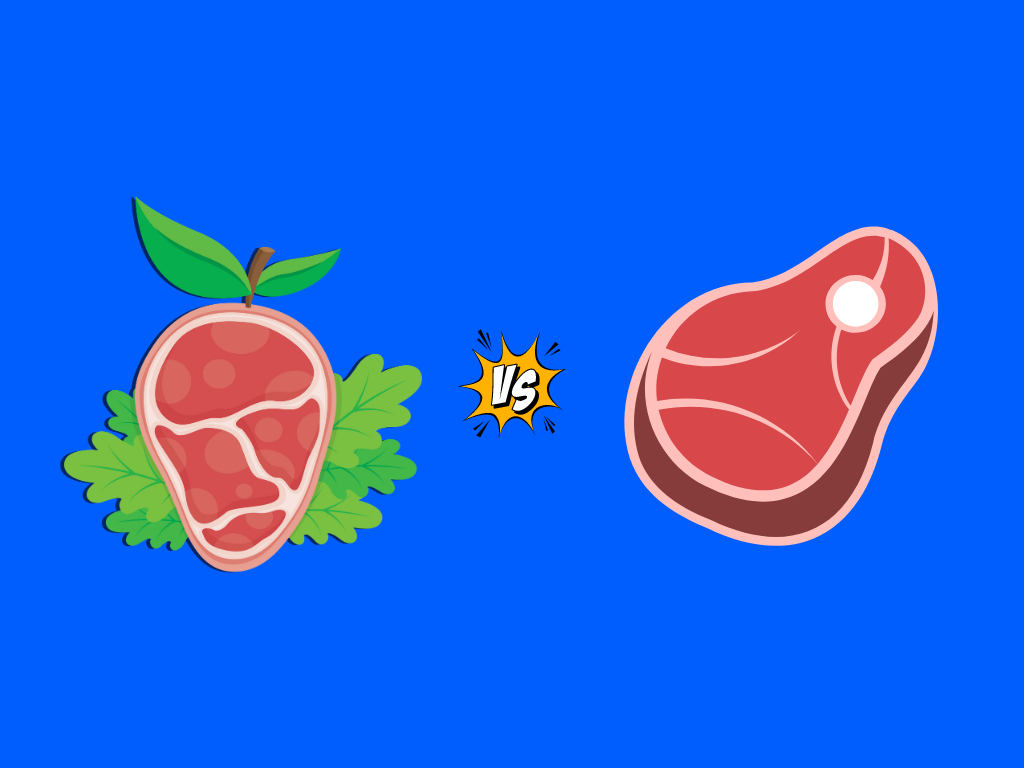5 Mins Read
Leading US plant-based food companies are reportedly considering forming a coalition similar to groups behind ultra-successful marketing campaigns like Got Milk? and The Incredible Edible Egg, according to Adweek. Earmarked for a 2024 launch, it’s touted as a response to negative media coverage and targeted ads by Big Ag.
It’s been a rocky couple of years for the plant-based industry. Attacks on sales, attacks by the media, attacks through ads coordinated by the meat and dairy lobby…The sector has taken a hit – and now, it’s looking to fight back.
While there has been no formal formation, Adweek reports that discussions have intensified over the last six months about the coalition, which involves both small startups and larger corporations. Some of the reasons cited for this include the infamous Bloomberg story calling plant-based meat “just another fad”, as well as the Center for Consumer Freedom’s (CCF) repeated targeting of these products’ extra-long ingredient lists.
Adweek reports that the coalition was initially supposed to form this year with a handful of vegan companies (not limited to alt-meat), but complications like “inflation-driven setbacks” have led to a delay. People involved in the coalition say the group will launch next year.
There are no requests for proposals or active searches for an ad agency, but insiders believe it will be a multifaceted national marketing campaign. The coalition is likely to approach creatives with experience in the plant-based category, but it may be asking for pro-bono or discounted work.
Fighting back against Big Ag
The CCF’s smear campaign against alt-meat involved print ads, newspaper op-eds, video features and target websites like Clean Food Facts – with the biggest attack coming during the 2020 Super Bowl, featuring Spelling Bee participants struggling with words like methylcellulose and propylene glycol (which it claimed were “chemicals” used for “synthetic meats”). “If you can’t spell it or pronounce it,” concluded the ad, “maybe you shouldn’t be eating it.”
In response, Beyond Meat debuted an ad earlier this month that spotlit its farmers and subtly tackled misinformation about alt-protein. This was in contrast to Impossible Foods’ more on-the-nose musical commercial. Its CEO Peter McGuinness has previously said that vegan food marketers (including Impossible) haven’t sold themselves well enough to consumers.
Speaking on the UN’s climate change podcast in March, he said: “Now, the meat industry does quite a good job against us, and they’re highly coordinated, they’re well funded, and they’re pretty loud. “So I think we can borrow a page of that book and do it as a coalition, as plant-based companies, and we need to do that very soon.”
It’s also worth noting that Beyond CEO Ethan Brown mentioned “bringing together industry coalitions” during a recent earnings call. The idea has gained widespread support by the sector, according to Adweek. “We believe this is the true catalyst needed to push the category forward,” Daring Foods CEO Ross Mackay told the publication. “A unified approach would simplify the narrative, making it more compelling.”

Finding a suitable approach
But some are unsure about the coalition’s potential. Rachel Konrad, the former head of communications at Impossible who is now chief brand officer at VC firm The Production Board, told Adweek: “I’m 100% skeptical that a group would get much of anything accomplished, especially in the short term. And the bigger the group got, the harder it would be to do an edgy, breakthrough, memorable campaign.”
In a separate piece, Adweek also compared different approaches the campaign could take. One executive told the reporter they imagined an ad influenced by the anti-tobacco Truth campaign, honing in on factory farming, slaughterhouse conditions and food safety issues. But there may be a hesitancy to support such an aggressive approach, with some leaders preferring a more educational, ‘myth-busting’ tone.
There is also a list outlining what to avoid. This includes making customers feel guilty about not eating vegetables, demonising cows for their climate footprint, and continuing to push Silicon Valley startups as food tech (because “nobody wants to eat technology”, as one insider puts it).
“The narrative shouldn’t insist on adopting a stringent vegetarian or vegan lifestyle,” Mackay was quoted as saying. “Instead, it should underscore the significant impact that small, everyday changes can help.”
Konrad suggested that while action is critical given the industry is “under siege’, a crisis PR campaign would at best be on the news cycle for 24 hours, and at worst be “some shitty PSA that nobody will give a crap about”. A professional consortium would also not work, she said, because “the game is rigged” against the plant-based sector.
Instead, companies should go hyperactive and be “speaking out whenever there’s an attack ad from animal agriculture and refuting everything, commenting all the time for news stories, putting out massive amounts of thought leadership, being at the UN, at Davos, Ted Talks, creating viral videos and contests for fans, picking up user-generated content, using AI to generate ads for virtually nothing”.

Funding could be a challenge
While industry advocacy groups and think tanks like the Plant Based Foods Association and the Good Food Institute exist, their work is much more focused on research than consumer outreach. So a marketing coalition such as this one could represent a turning point for an industry whose fortunes have fluctuated lately.
But one problem is money. Unlike Big Beef and its Beef Checkoff marketing program, which is funded by cattle producers and importers who pay a $1 levy for every live animal sold, there is no such system for the plant-based industry. Food industry veteran and Wicked Kitchen CEO Pete Sparanza admitted as much, telling Adweek that funding for the coalition and its broad-based advertising would be a significant challenge, “because there aren’t a lot of profitable stories right now in the plant-based space”.
Despite that, he did reiterate the need for the industry to stick together as advocates, not competitors. “If we’re going to change the food system for the long haul, we’ll need to cooperate.”




